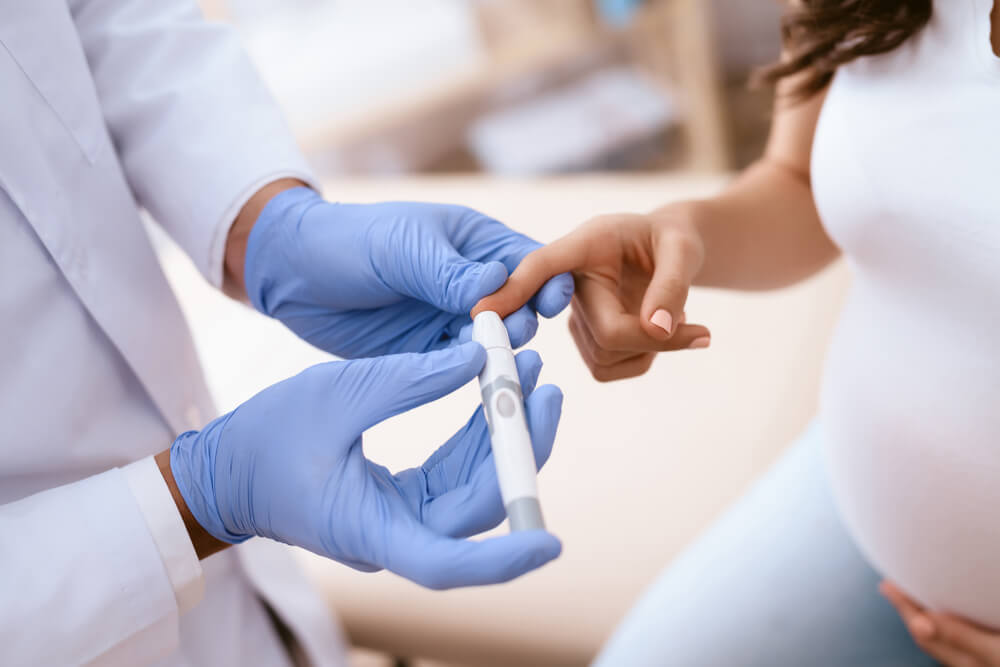Pregnancy is the most magical and exciting time for many expecting mothers. However, it can also be a time of increased health concerns, especially when it comes to managing gestational diabetes. That said, the Pregnancy Glucose Test is one of the most important tests that expectant mothers undergo during pregnancy. You will want to opt for the glucose test when pregnant to monitor glucose levels in your blood – this is key in detecting gestational diabetes.
In this expert article, we will explain what the Pregnancy Glucose Test is, why it is so important, and how it is performed. We will also discuss the test results and what they mean for both the expecting mother and the baby. So, if you are going to be a proud mother and want the best for your family, learning about the glucose screening test is a must. We recommend reaching out to experts at a renowned clinic such as Broward Complete OB-GYN Wellness Center.
Now, here is what you must know about the glucose test when pregnant.
What Does a Glucose Test During Pregnancy Mean for You?

Doing the glucose test when pregnant is of vital importance because it helps to detect whether the mother has gestational diabetes or not. For reference, gestational diabetes is a type of diabetes that affects pregnant women. This disease can cause high blood sugar levels, and if left untreated, gestational diabetes can lead to complications for both the mother and the baby. For instance, women with gestational diabetes may have to deal with complications such as high birth weight, preterm labor, and an increased risk of developing type 2 diabetes later in life.
The Pregnancy Glucose Test allows healthcare experts to identify and manage gestational diabetes early, thus helping to minimize the risk of these complications and ensure a healthy and happy pregnancy.
Who is at risk of gestational diabetes? Overall, any pregnant patient can experience gestational diabetes. Nevertheless, certain factors can boost the risk of developing the condition. Here are some common risk factors to consider:
- Being overweight or obese before pregnancy
- Having a family history of diabetes
- Having a previous history of gestational diabetes
- Having delivered a baby weighing more than 9 pounds in the past
- Being of African American, Hispanic, American Indian, or Asian/Pacific Islander descent
- Being older than 25 years of age
Keep in mind that even if a patient does not have any of the mentioned risk factors, they can still develop gestational diabetes. Regular prenatal care, including the Pregnancy Glucose Test, can assist in detecting gestational diabetes early and ensure that your baby is born healthy. If you are located in the area or searching for the best experts in the field, we recommend a pregnancy care center in Plantation, Florida.
What Is the Glucose Screening Test?
The Glucose Screening Test is used to detect gestational diabetes. Typically, medical experts perform it between 24 and 28 weeks of pregnancy, although it may happen earlier or later in some cases.
The test involves drinking a sugary drink and having a blood sample taken an hour later to measure the level of glucose in the blood. The test results can help healthcare providers determine whether a woman has gestational diabetes and, if so, develop a treatment plan.
In some cases, women with abnormal results on the Glucose Screening Test may need further testing to confirm the diagnosis of gestational diabetes.
What Is the Glucose Tolerance Test?
Now that you are familiar with the glucose screening test, what is the tolerance test? In short, the Glucose Tolerance Test is a diagnostic test medical experts use to confirm the diagnosis of gestational diabetes.
Usually, the Glucose Tolerance Test is performed after an abnormal result on the Glucose Screening Test. Still, it can also be performed for other reasons (such as a high-risk pregnancy). This test involves consuming a sugary drink and having several blood samples taken over two to three hours to measure the glucose level in the patient’s blood. The test results can help medical providers determine whether the patient has gestational diabetes and develop the best treatment plan possible.
Interestingly, the Glucose Tolerance Test is more extensive than the Glucose Screening Test, but it provides a more accurate picture of a woman’s glucose tolerance and is considered the gold standard for diagnosing gestational diabetes.
When Is the Glucose Test Performed?
The Glucose Test during pregnancy is typically performed between 24 and 28 weeks. However, as mentioned, it may be performed earlier or later. The exact time frame will depend on the woman’s individual risk factors for gestational diabetes.
Namely, women who are at higher risk for gestational diabetes (such as patients with a previous history of gestational diabetes or a family history of diabetes) may need to undergo the test earlier in their pregnancy. All in all, the Glucose Test during pregnancy is a vital part of prenatal care, and it should be taken seriously.
How Can I Prepare Myself for the Gestational Diabetes Test?
To prepare for the gestational diabetes test, experts recommend the following:
- Fast for 8 to 14 hours before the test, usually overnight. You should only drink water during this time.
- Avoid strenuous exercise before the test, as this can affect your blood sugar levels.
- Inform your healthcare provider of any medications you are taking, as some medications can affect your results.
- Wear comfortable, loose clothing to the appointment since you will need to have a blood sample taken.
Follow your healthcare provider’s instructions carefully, as failure to prepare for the gestational diabetes test can affect the accuracy of the results. Plus, it is wise to ask any questions you may have before the test to help ensure that you understand what to expect and how to prepare.
How Does the Glucose Test When Pregnant Look Like?

The glucose tolerance test during pregnancy is performed as follows:
- Preparing for the test: As mentioned, you will need to fast for 8 to 14 hours before the test, only drinking water, usually overnight.
- Drinking the sugar solution: You will be given a sugary drink to consume, typically containing a certain amount of glucose.
- Analyzing the blood samples: After drinking the sugar solution, blood samples will be taken at regular intervals over the next 2 to 3 hours to measure your blood sugar levels.
- Getting the results: The test results will be analyzed to determine whether you have gestational diabetes. The results will show how your body handles the glucose in the sugar solution and whether your blood sugar levels are elevated or remain within a normal range.
Can I Say No to the Test When Pregnant?
As you know by now, the glucose test is an easy and painless way to check if you have gestational diabetes, a problem that can cause harm to both you and your baby if not treated. Of course, you can refuse to take the glucose test if you don’t want to. However, patients should know what might happen if they don’t take the test. Namely, you might not find out if you have gestational diabetes and, consequently, might be unable to keep yourself and your baby healthy.
Give Us a Call Today
Take care of your health and the well-being of your unborn child by consulting with experts at the pregnancy care center in Plantation, Florida. Book an appointment today.


